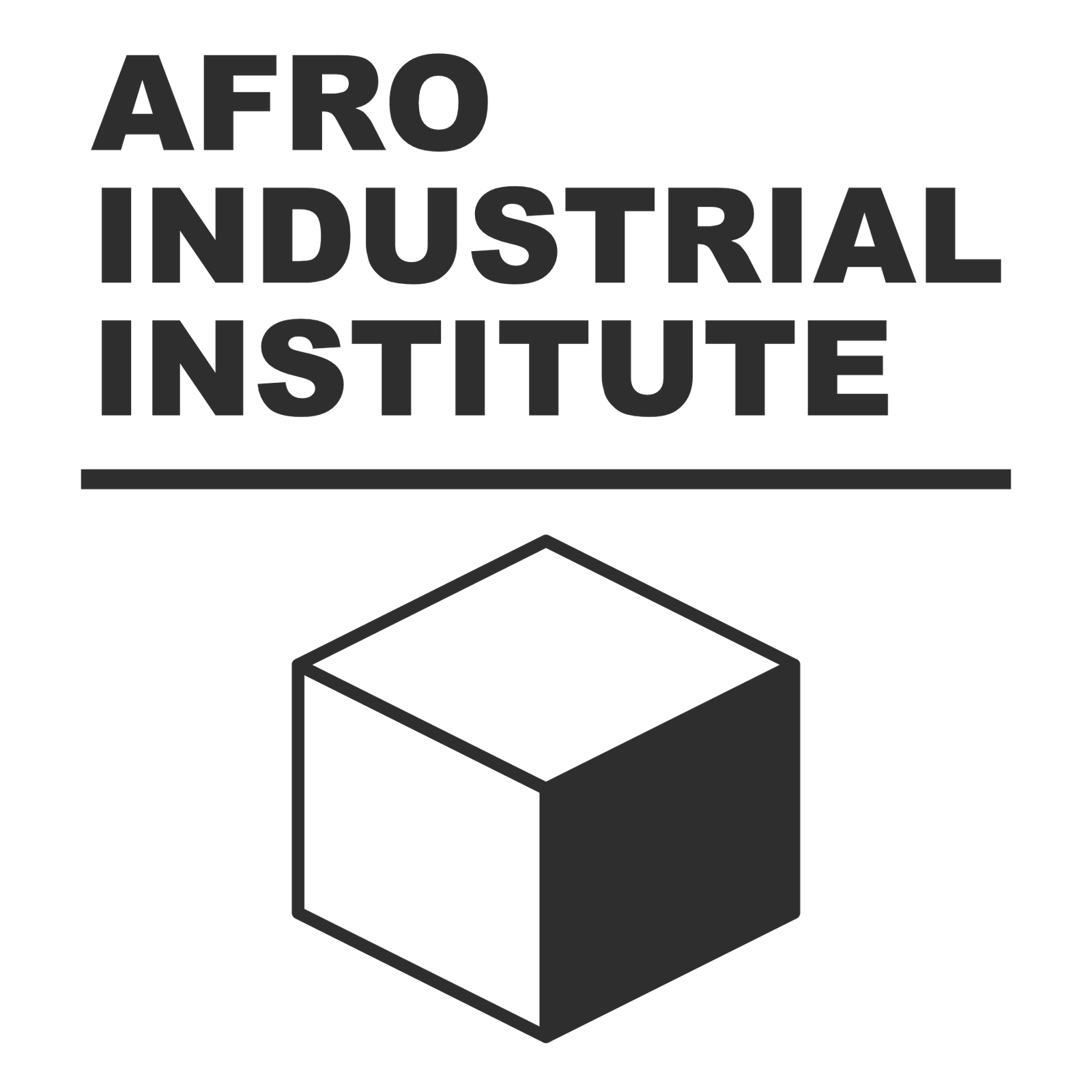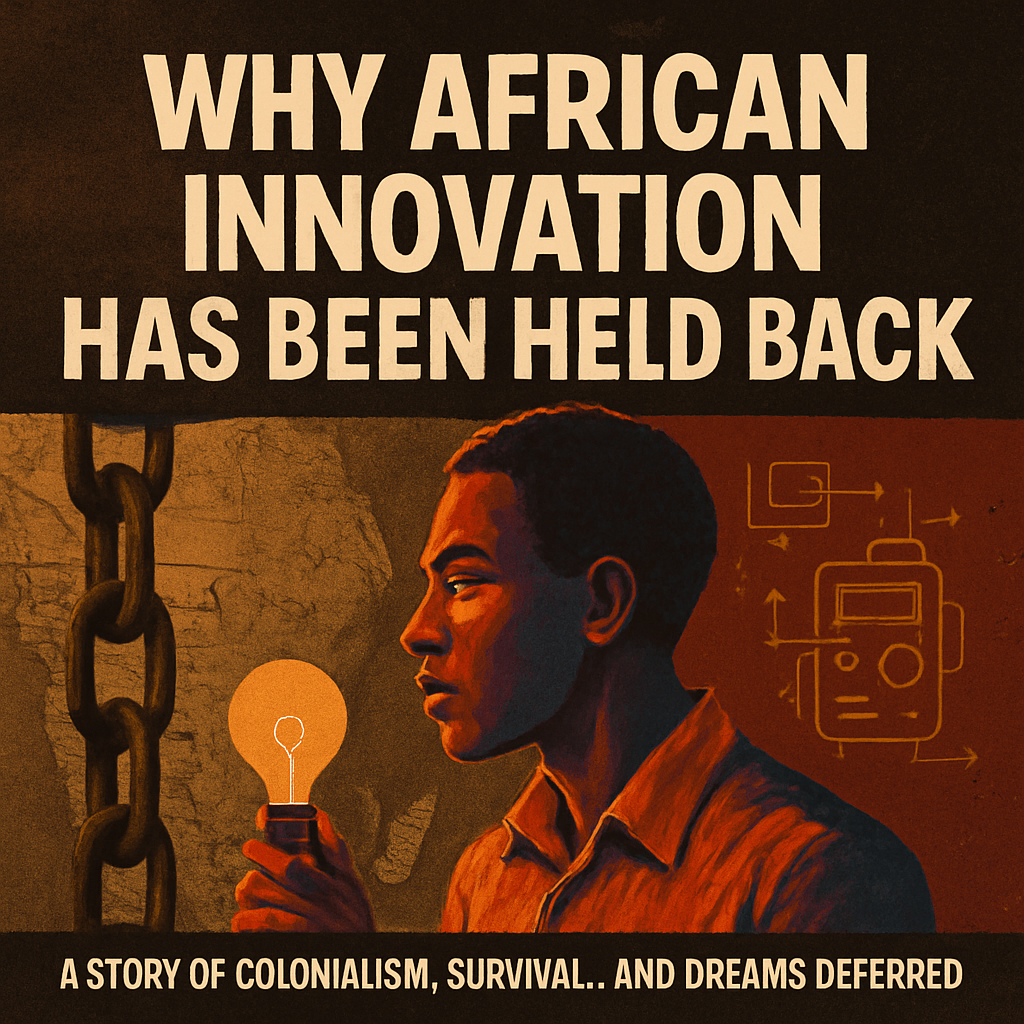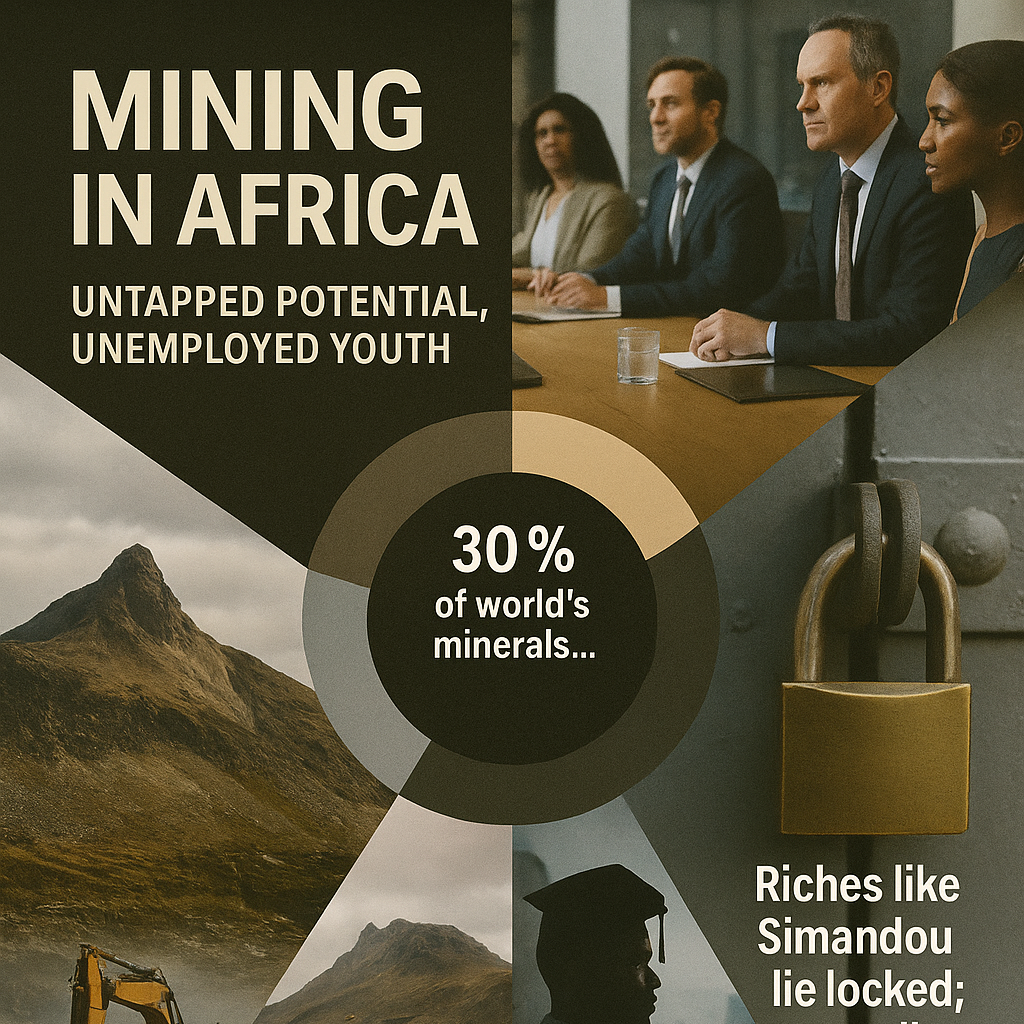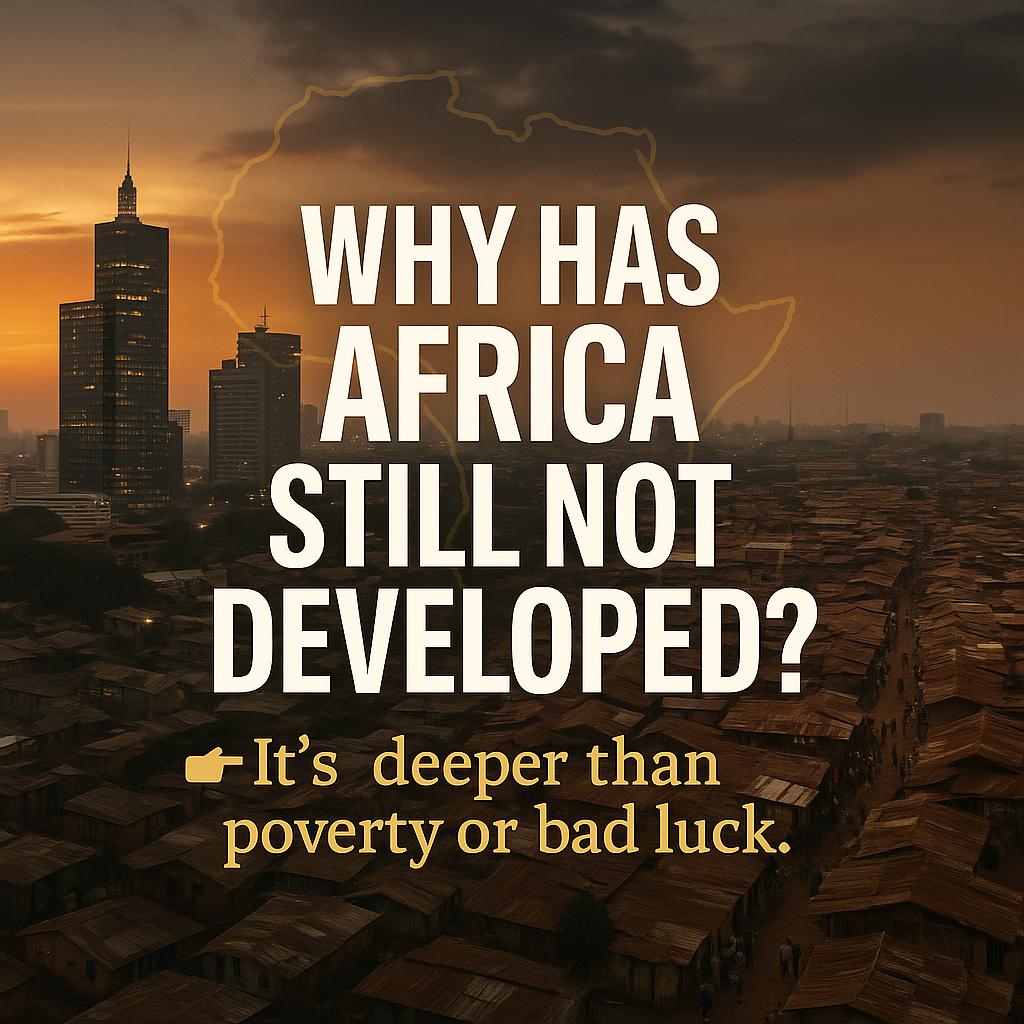
The issue of underdevelopment in Africa is multifaceted, deeply rooted in both historical and contemporary dynamics. While Africa is rich in natural resources, cultural heritage, and human potential, many African nations continue to face significant development challenges. Three key themes are particularly important in this discussion: internal governance issues, particularly corruption; external influences from Western powers; and the complex relationship between the two.
1. Corruption and Governance in Africa
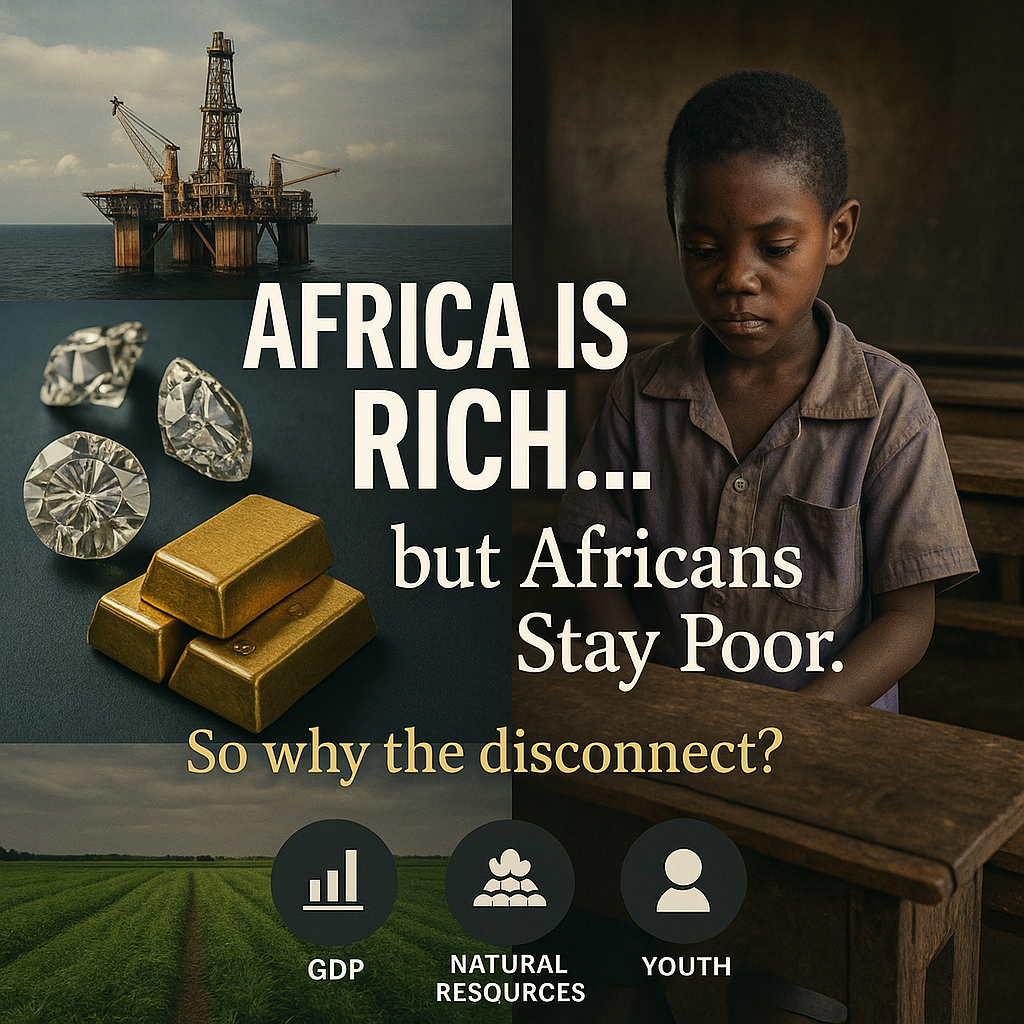
Corruption is one of the most cited internal obstacles to development in many African countries. This includes:
- Embezzlement of Public Funds: Political elites often misappropriate state resources meant for infrastructure, healthcare, education, and social services.
- Lack of Accountability: Weak institutions and legal systems fail to hold leaders accountable, allowing corrupt practices to go unchecked.
- Election Rigging and Authoritarianism: Leaders manipulate electoral systems to stay in power indefinitely, undermining democracy and stifling reform efforts.
Corrupt leadership undermines investor confidence, discourages innovation, and results in poor service delivery. The resources that could have been used to build schools, roads, and hospitals instead end up in offshore bank accounts or luxurious lifestyles for a small elite.
2. External Influence and Neocolonialism
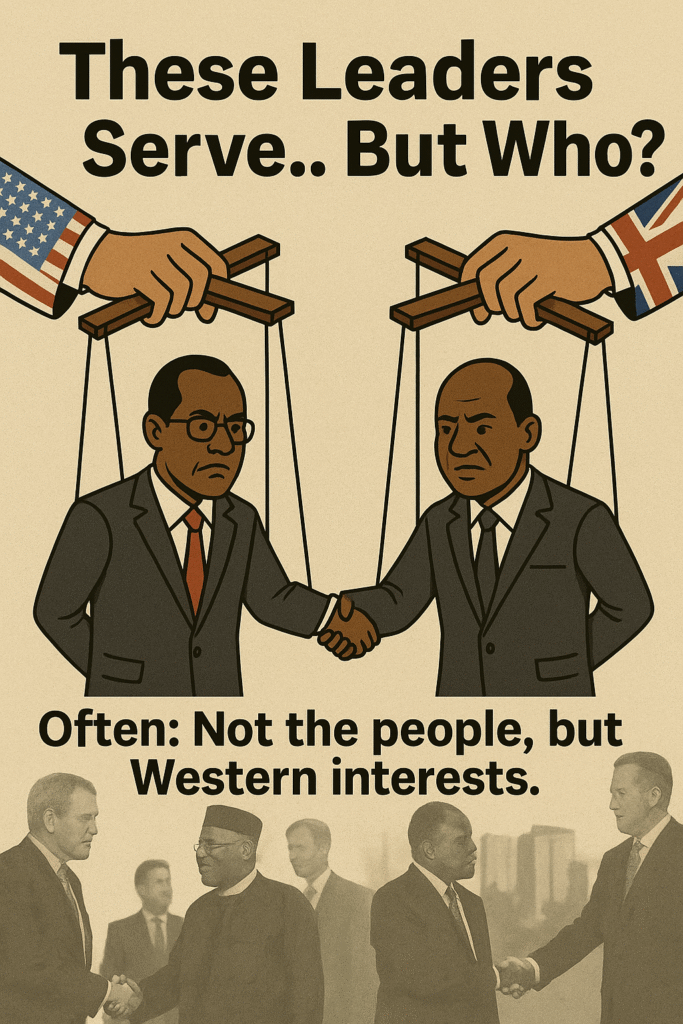
Many African leaders are accused of being puppets of Western powers, serving foreign interests rather than those of their own people. This dynamic is often referred to as neocolonialism—a modern form of colonial control through economic, political, and cultural pressures.
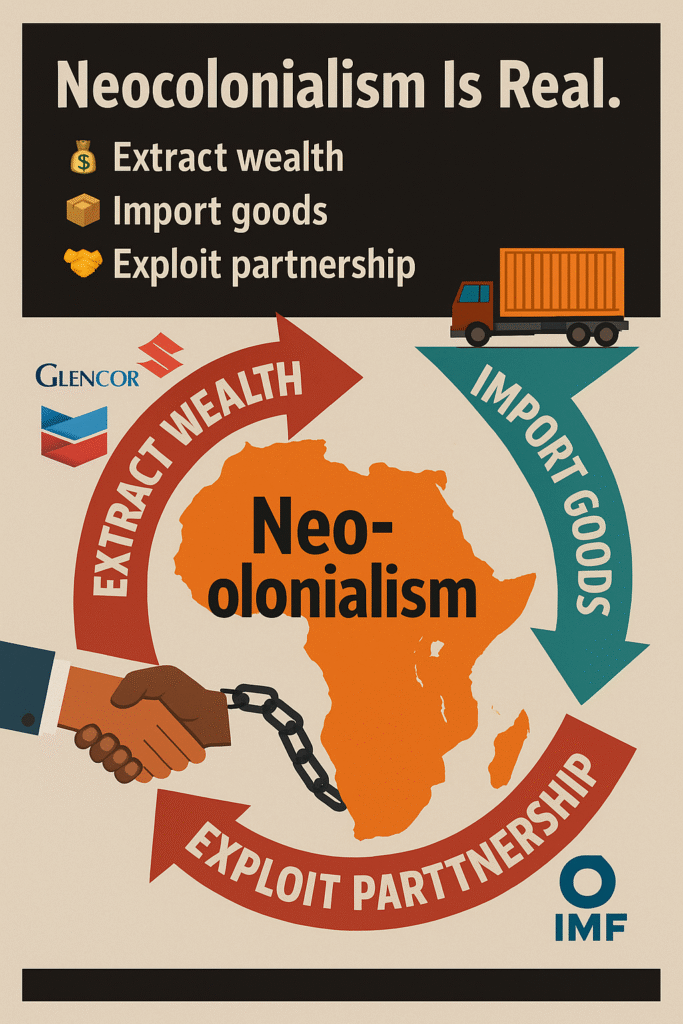
- Foreign-Backed Regimes: In some cases, Western countries have supported coups or propped up regimes that favor their strategic or economic interests, especially in resource-rich nations.
- Debt and Economic Dependency: Institutions like the IMF and World Bank impose structural adjustment programs that often prioritize debt repayment over social development.
- Resource Exploitation: Multinational corporations, with the support of some African leaders, extract resources while returning minimal value to local populations.
This external influence compromises sovereignty and weakens the development agenda, as leaders are often more accountable to foreign donors or interests than to their own citizens.
3. The Vicious Cycle of Exploitation and Underdevelopment
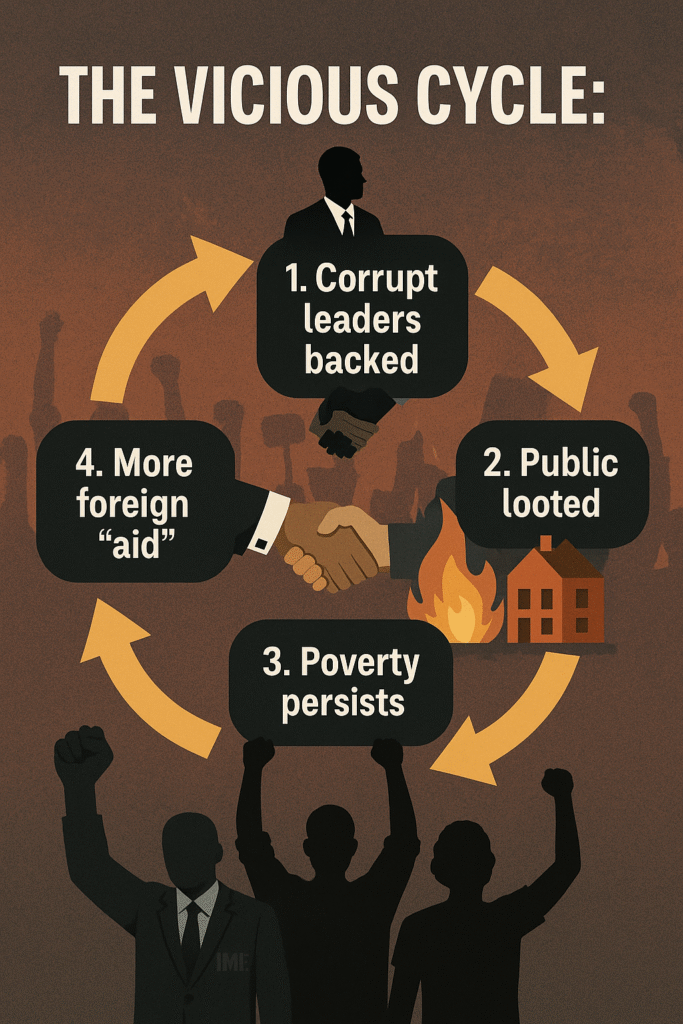
The relationship between internal corruption and external manipulation creates a vicious cycle:
- Foreign interests support corrupt leaders who, in return, ensure favorable business and trade conditions.
- These leaders use their positions to enrich themselves and suppress dissent, preventing meaningful development.
- The resulting poverty and instability justify further external intervention, which often serves those same interests.
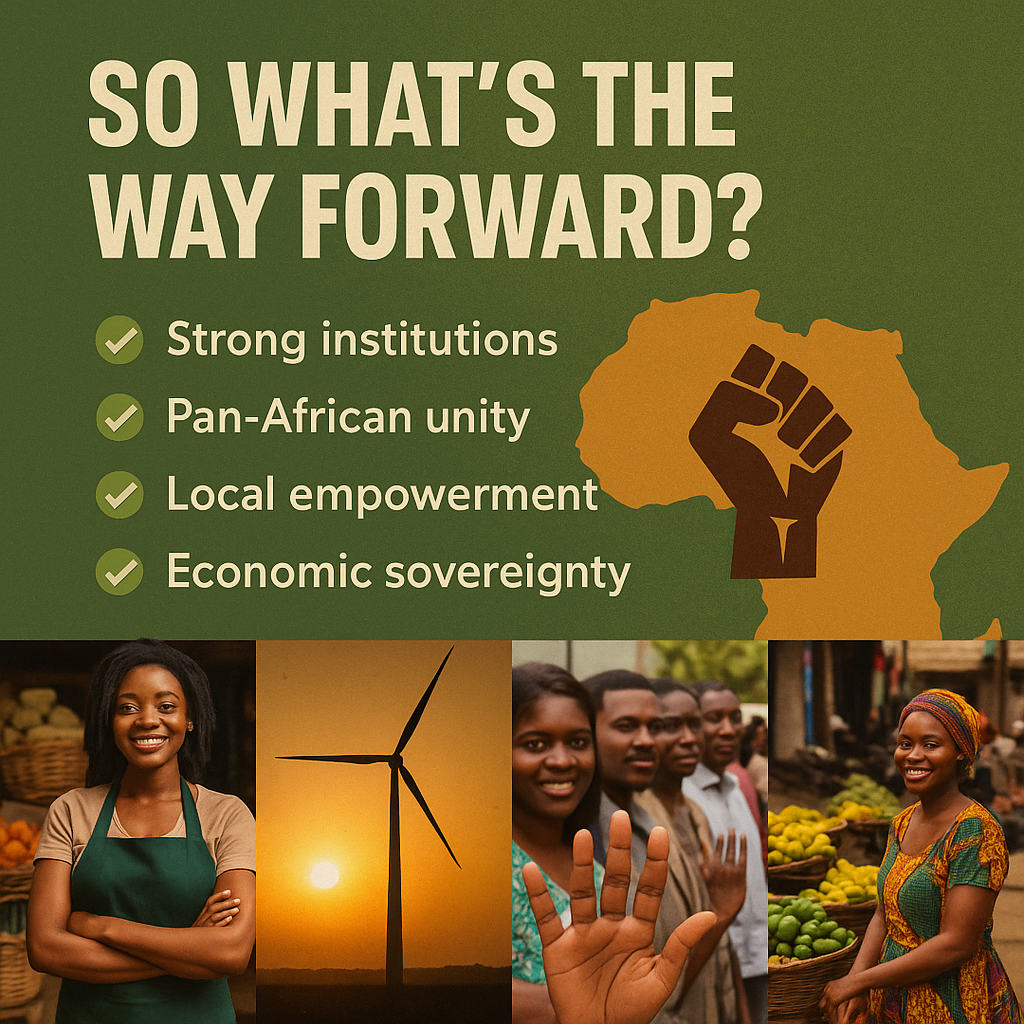
4. Breaking the Cycle
Addressing these challenges requires a multi-pronged approach:
- Strong Institutions: Independent judiciaries, anti-corruption commissions, and free media can hold leaders accountable.
- Empowered Civil Societies: Educated and organized populations can pressure for change and demand transparency.
- Economic Diversification and Pan-African Solidarity: Reducing reliance on foreign aid and trade with colonial-era partners can foster more sustainable development.
Conclusion
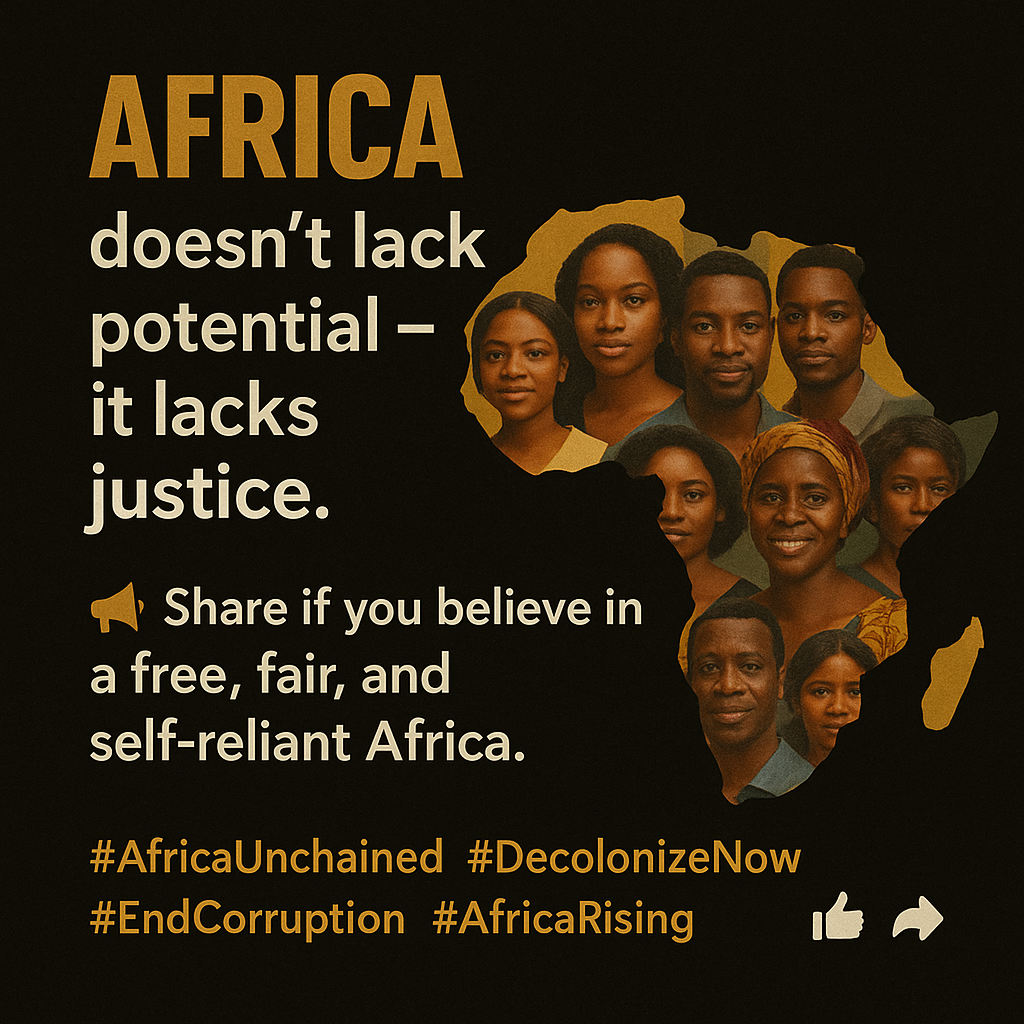
Africa’s underdevelopment is not due to a lack of potential or ability. Instead, it’s a consequence of complex historical exploitation, ongoing foreign interference, and the complicity of some African leaders who prioritize personal gain over public service. True progress will require both internal reforms and a rethinking of Africa’s position in the global order—a shift from being a passive resource provider to an active, self-determined player on the world stage.
